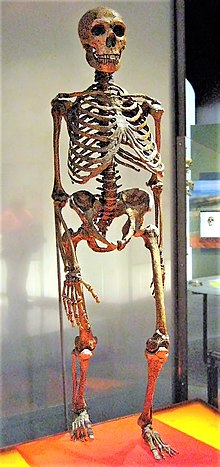
Neanderthals
Neanderthals (; Homo neanderthalensis or H. sapiens neanderthalensis), also written as Neandertals, are an extinct species or subspecies of archaic humans who lived in Eurasia until about 40,000 years ago.

Neanderthals (; Homo neanderthalensis or H. sapiens neanderthalensis), also written as Neandertals, are an extinct species or subspecies of archaic humans who lived in Eurasia until about 40,000 years ago.